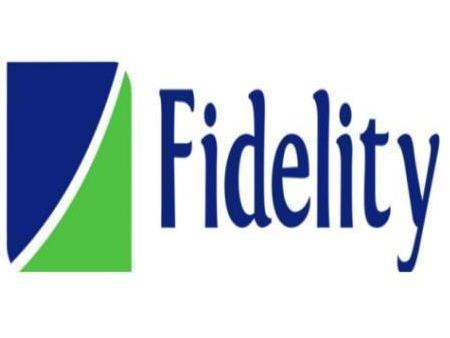The week in review kicked off penultimate Monday with the Federal Government, through the Debt Management Office (DMO), announcing it intends to raise up to USD2.8 billion (N899bn) in Eurobonds, as part of its plan to finance the 2018 budget, with objectives of extending the tenor of the nation’s debt stock and lowering the cost of debt.
The issuance will move the government closer to achieving its target debt portfolio mix of 60%:40%. We however highlight the increased exposure to foreign exchange risk, and the potentially higher debt service costs in the event of negative external shocks to the economy.
On Thursday last week, the World Bank, via the International Development Association (IDA), announced its approval of a total of USD2.1 billion as a project support loan for Nigeria. The concessionary loan is to majorly fund power and climate change projects, and to also improve fiscal transparency in Nigeria.
This is a welcome development, as the funds will contribute to covering the nation’s large infrastructure deficit. This will also positively impact the government’s cost of borrowing as interest rate on the loan will likely be at sub-market concessional rates which are cheaper than Eurobonds and FGN bonds.
On Capital markets and Equities, last week’s market closed positive (+1.10%), amidst sessions of mixed trading, and a late positive close in today’s session. As a result, the Month-to-Date and Year-to-date returns both turned positive, at 0.46% and 0.09% respectively.
The Consumer Goods, Industrial Goods, and Insurance indices closed positive, while negative returns were posted by the Oil & Gas and Banking indices. Notable market movers during the week were DANGCEM, NB, NESTLE, WAPCO, and TOTAL, while UNITYBNK led the gainers, and JAPAULOIL led the laggards.
However, in the absence of near-term one-off positive catalysts (save for likely better-than-expected Q2 earnings results), analysts at Cordros Capital posit a cautious approach towards risky assets in the short-to-medium term, despite supportive macroeconomic fundamentals. That said, the analysts say they expect continued value in taking long term position in fundamentally sound stocks, particularly those with consistent dividend paying history.
On Fixed income & money market, the week in review showed the overnight lending rate surged 1,050 bps on average, w/w, to close at 14.08% as outflows for OMO (NGN207.04 billion) and bond (NGN31.22 billion) auctions, as well as FX sales (USD210 million), outweighed inflows from matured OMO bills worth NGN183.27 billion.
This week, observers say inflows from maturing OMO bills (NGN238.65 billion) and the monthly FAAC disbursement (c. NGN300 billion) are likely to outweigh outflows; thus, higher liquidity. In effect, a contraction in the overnight lending rate is likely.
In the treasury bills market, bearish sentiments were sustained, on the back of reduced liquidity. Consequently, average yield rose 10 bps to 13.00%. Investor sentiment was negative across the short (+8 bps), mid (+8 bps), and long (+12 bps) ends of the curve, amid selloffs of the 13DTM (+61 bps), 146DTM (+29 bps), and 188DTM (+36 bps) bills, respectively.
This week also, experts expect a reversal of the bearish trend, on the back of anticipated healthy liquidity. At the NTB auction scheduled for Wednesday, the CBN will offer NGN170.50 billion – NGN9.52 billion of the 91-day, NGN33.93 billion of the 182-day, and NGN127.06 billion of the 364-day – worth of bills to the market.
Within last week’s trading span, activities in the bond market was similarly bearish, as yields rose by 13 bps on average, w/w, to 13.66%. There was sell pressure at the mid (+20bps) and long (+25 bps) ends of the curve, with the FEB-2028 (+45 bps) and MAR-2036 (+31 bps) bonds recording the most significant expansions, respectively. Conversely, yield at the short (-5 bps) contracted, driven by demand for the FEB-2020 (-67 bps) bond.
At Wednesday’s primary auction, the DMO allotted NGN3.49 billion of the APR-2023 (re-opening), NGN6.70 billion of the MAR-2025 (re-opening), and NGN21.03 billion of the FEB-2028 (re-opening) bonds at respective stop rates of 13.5% (vs. 13.5% at the previous auction), 13.8% (vs. 13.5% at the previous auction), and 13.81% (vs. 13.55% at previous auction). The auction was 2.14x oversubscribed.
Cordros Capital analysts theme on the bond market favours modestly higher yields in the medium term, anchored on (1) weakening signs of monetary easing, (2) capital flight amid higher yields in safe haven assets, (3) political uncertainty stemming from the upcoming elections, and (4) increased government borrowing to fund the 2018 budget.
On Foreign exchange, last week’s activities showed that the naira closed flat at NGN362 in the parallel market — having hit a 3-week high of NGN361 during the week.
In the I&E FX window, the USD/NGN weakened by 0.09% to NGN361.32, while total turnover in the window was lower by 19.59%, at USD728.49 million, with bulk of trades executed within the NGN360-NGN369/USD band. The apex bank continued to intervene in the FX market, injecting USD210 million during the week — USD100 million to the wholesale window, and USD55 million apiece to the SMEs and invisibles segments. In the FX forwards market, the NGN/USD weakened across all major dated contracts — 1-month (-0.17%), 3-month (-0.44%), 6-month (-0.78%), and 1-year (-1.51%) – to NGN364.97. NGN372.50, NGN385.50, and NGN405.79, respectively.









